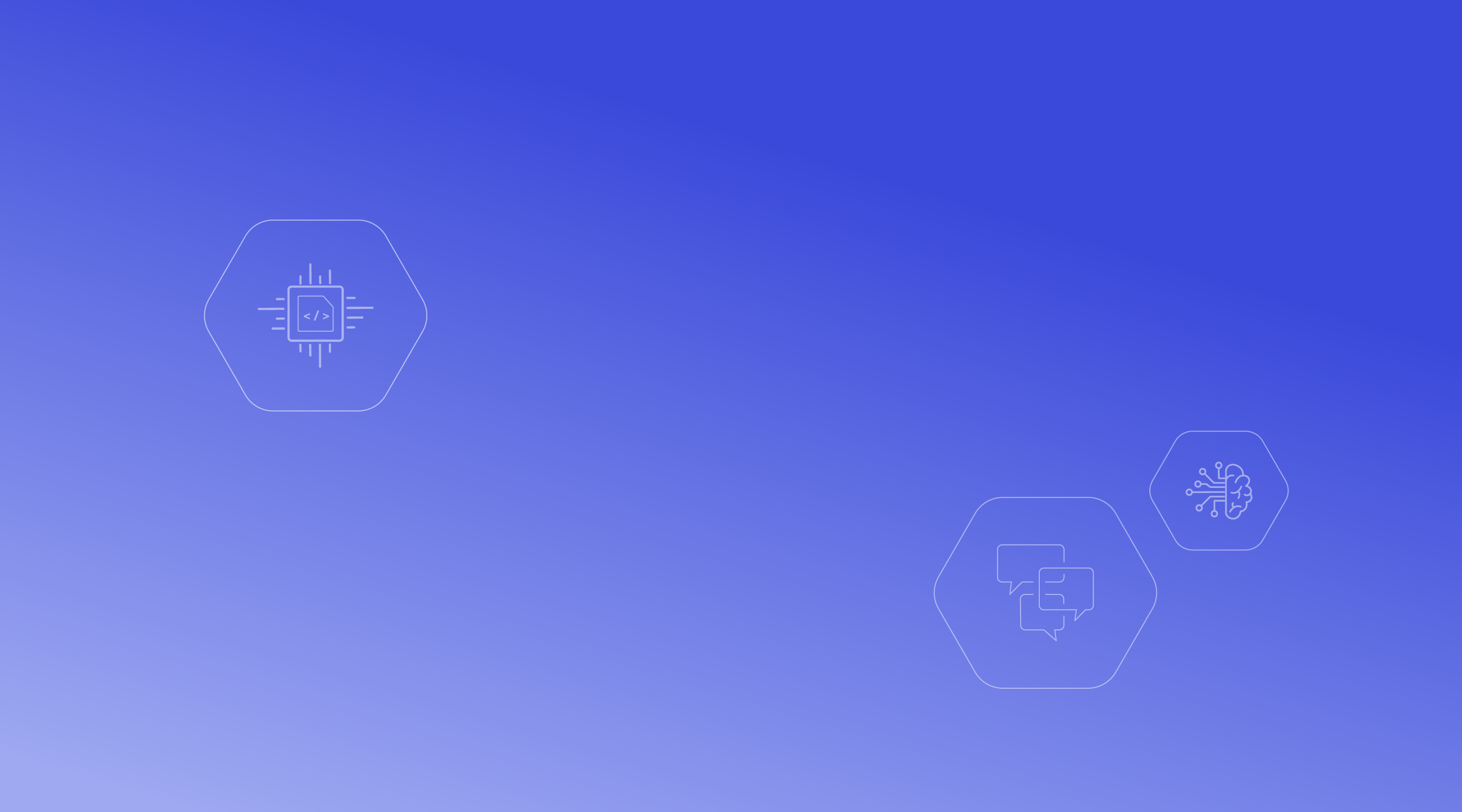
10 New Jobs Created by AI: Is One Right for You?
Raise your hand if you love major change .…
No one? Not a surprise.
Yet, like it or not, today’s workforce is facing the biggest change since the Industrial Revolution, as AI is poised to radically reshape how work is done.
How you face this transition can make all the difference, said Ruth Hickin, vice president, workforce innovation, at Salesforce.
Even if disruptive change is not your cup of tea, being flexible, open-minded, and curious can help you navigate this transition. Having this mindset could lead to a new job — such as one of the 10 listed below — or an exciting new career.

How AI is changing jobs
Need proof that the workforce is changing? Consider the numbers. The World Economic Forum predicts that artificial intelligence (AI) and other trends will displace 92 million jobs by 2030. The good news: These same trends will create 170 million new jobs. All told, that’s a net gain of 78 million jobs.
A recent IBM survey offers further hope: 54% of CEOs said they’re hiring for AI-related roles that didn’t even exist a year ago.
As AI changes jobs, it often offers new opportunities. For example, in a recent LinkedIn article, organizational psychologist Michelle Penelope King said an HR leader was afraid to use AI to screen resumes, partly because she thought it would make her redundant. But after she let AI handle this task, she had more time to build relationships with candidates. Suddenly, she could do more of the work she loves.
King suggested that people reframe their thinking from “AI will take my job” to “How can AI help me grow in my role?”
Part of that growth will come from learning how to partner with AI. In a recent Salesforce survey, 80% of chief human resource officers (CHROs) said that within five years, the workforce will be a mix of humans and digital labor. And when humans and AI work together, they amplify the strengths of each other.
A physician, for example, might ask AI to help analyze a complex medical image, and then rely on their years of experience to make a diagnosis. Or consider the real-life example of Big Brothers Big Sisters of America: It uses Agentforce, the Salesforce platform for building and deploying AI agents, to quickly sort through data and match young people with adult mentors. A human matching specialist then makes the final decision.

10 new jobs created by AI
AI isn’t just changing tasks within specific roles. It’s also creating new jobs and careers. Here are 10 jobs that are new or that Hickin envisions as future AI jobs. One of them could be your next role.
1. Role augmentation and redesign lead
“If you have a software engineer and 50% of code is now being done by an AI tool, what does it mean to be a software engineer in the future?” Hickin said. A redesign lead can answer this. They look at how AI is changing specific roles, and use strategy and data to redesign them.
2. AI ethicist
Also called an ethical AI architect or AI ethics officer, this professional develops guidelines and policies for the ethical use of AI. They think about the legal, moral, and social implications of AI, and make sure a company uses the technology in ways that align with its values. An AI ethicist might, for example, check for biases in your company’s hiring processes and suggest ways to improve them.
3. AI cybersecurity specialist
With rising concerns about AI-related cybersecurity challenges, companies want to protect themselves against malware, ransomware, and phishing attacks. The solution: AI cybersecurity specialists. These are like traditional cybersecurity specialists, but with a twist. Not only do they understand information security, but they know how to use AI to protect companies from potential threats.
4. Forward-deployed engineer
AI is getting easier to implement, but some companies still get stumped during deployment. That’s where a forward-deployed engineer comes in. Consider them your personal problem-solver or tech guru. As an article in Medium said, they’re kind of like “a firefighter crossed with a plumber and translator, but in the tech world.”
5. AI conversation designer
Ever had an interaction with a chatbot or AI agent that made you want to tear your hair out? Then you understand the huge demand for AI conversation designers: They write the underlying scripts, flows, and responses that AI agents use, making them sound and act, well, more human. They collaborate with linguists, UX designers, and engineers to shape an agent’s personality, and create a better customer experience.
6. AI integration specialist
When companies start using an AI agent — or any kind of AI — one of their first tasks is to integrate it into their existing workflows. An AI integration specialist can help. They work closely with IT teams, customer service managers, and AI solution providers to make sure that everything runs smoothly during a rollout.
7. AI for healthcare specialist
AI has already made inroads into healthcare, but its role is about to grow. Why? Because healthcare has a massive amount of data, Hickin said, and AI and machine learning can aggregate it to help clinicians make better decisions. She predicts that a variety of healthcare roles will emerge, from predictive cancer specialists to healthcare data specialists to head of AI for healthcare.
8. AI customer experience specialist
These pros create and roll out AI-powered strategies to make customer interactions more engaging and efficient. They dig into what customers need, study behavior patterns, and use tools like AI agents and customer service analytics to create personalized customer experiences. It’s a role that combines AI know-how with a strong understanding of what makes customers tick.
9. AI strategist
If there’s a mantra for adopting AI, it’s “Don’t focus on the tech, focus on the problem you want to solve.” This product-based role does just that. AI strategists identify the business problem to be solved, and use AI tools to create new products and generate things like product requirement documents. “They help you go straight from idea to execution much more quickly,” Hickin said, “and they often have a swarm of AI agents doing more of the mundane work.”
10. AI orchestrator
Think of this role as a conductor — only instead of waving a baton over strings and woodwinds, an AI orchestrator conducts disparate agents to work together in harmony. A company might, for example, have some AI agents in Slack, others working within a different product, one creating code for that product, and others building a schedule to test the effectiveness of each agent. “An orchestrator would ultimately design those agents and figure out how they interact with each other, as well as monitor their effectiveness,” said Hickin.

What skills do employees need now?
As jobs change, the required skills for these jobs are changing, too. And surprise: CHROs say AI literacy is the number one skill workers will need as companies transition into an agentic future. Here’s how workers can acquire the skills they need.

How companies can prepare employees for careers in AI
One of the best things companies can do during this transition is listen to employees’ concerns and openly address their anxiety about job displacement. The American Psychological Association found that 41% of workers are concerned about AI taking their jobs. Among millennial and Gen Z workers, it’s even higher (50%).
When leaders communicate openly and empathetically about changes taking place, employees feel supported and valued during the AI transition process. Offering this kind of psychological safety also helps workers feel more confident that their employer will retrain them for a different job if AI replaces their current one.
Upskilling and reskilling employees is a top priority for Salesforce. In 2024, the company launched a new AI-powered internal marketplace called Career Connect, where employees can find new jobs and enhance their skills. Likewise, Agentforce for Careers helps employees find skills training, peer-to-peer networking opportunities, and new roles, based on their skill set.
The company is also working to get employees skilled up on its Agentforce platform via Trailhead courses. So far, 28,000 Salesforce employees have become certified as Agentblazer Champions. And every quarter, the company holds an Agentforce Learning Day, encouraging employees to spend time learning how to use AI tools and assistants.
“Companies need to upskill and reskill employees to have an agile and stable workforce,” Hickin said.
It’s normal for human beings to resist change. After all, is there anyone who loves uncertainty? But as more and more jobs are created by AI, you can navigate the transition by staying adaptable, open-minded, and open to learning.
Images by Aleona Pollauf/Salesforce.



































